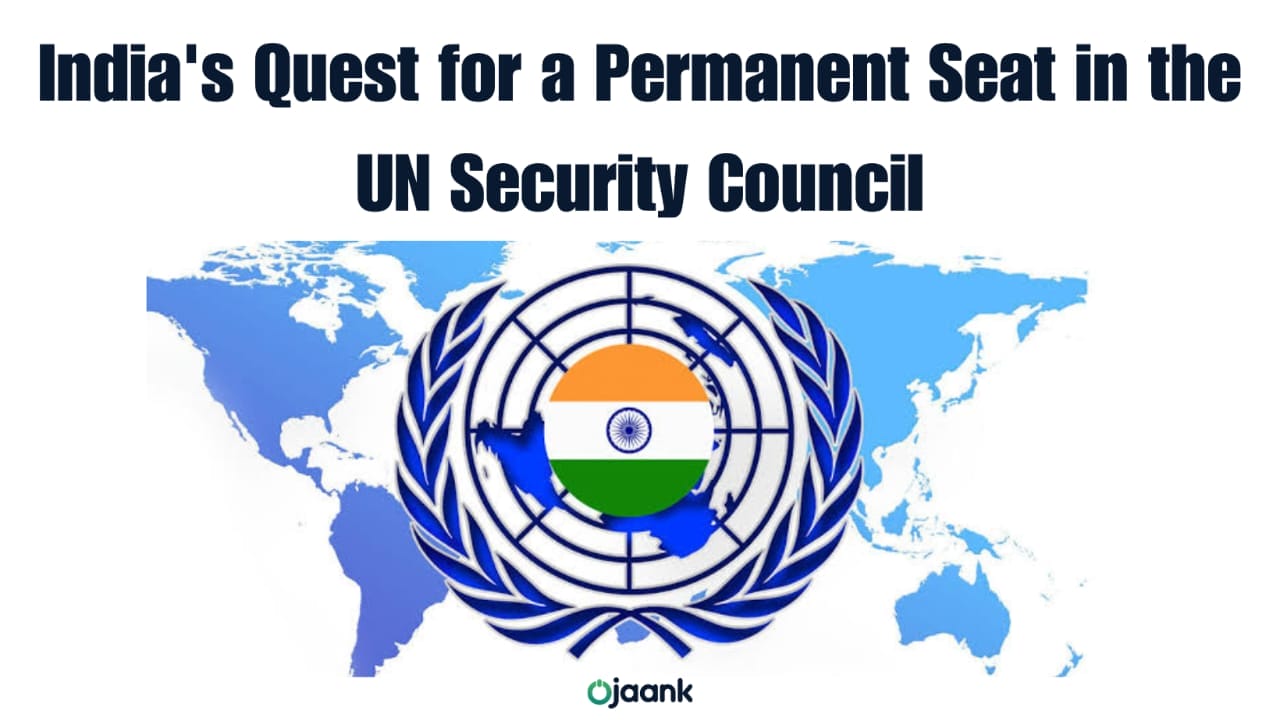India's Quest for a Permanent Seat in the UN Security Council

India, one of the world's largest and most influential nations, has long sought a permanent seat on the United Nations Security Council (UNSC). This demand is rooted in India's rich history, its significant contributions to global peacekeeping efforts, and its growing importance on the world stage. In this blog, we will explore the reasons behind India's aspiration for a permanent UNSC seat, the challenges it faces, and the potential benefits such a move could bring to the international community.
Historical Perspective:
India's quest for a permanent seat in the UNSC is deeply rooted in history. As a founding member of the United Nations in 1945, India played a crucial role in drafting the UN Charter. However, it has been almost eight decades since the UN's establishment, and the world has undergone significant geopolitical changes. India argues that the UNSC should reflect these changes by expanding its membership to include emerging powers like itself.
India's Global Contributions:
India's demand for a permanent seat is not merely based on its size and population but also on its substantial contributions to global peace and security. India has consistently been one of the largest contributors to UN peacekeeping missions, deploying troops to conflict zones around the world. Its troops have often risked their lives to maintain peace and stability in regions torn apart by conflict, exemplifying India's commitment to the UN's principles.
Economic Powerhouse:
India's rapid economic growth over the past few decades has propelled it into the ranks of major economic powers. It is currently the world's fifth-largest economy and is expected to continue its upward trajectory. This economic prowess, coupled with its large and diverse market, makes India an attractive partner for global trade and investment.
Democratic Values:
India is the world's largest democracy, with a robust system of government that respects human rights and the rule of law. It serves as an example of how a diverse and multicultural society can function harmoniously under democratic principles. By granting India a permanent seat in the UNSC, the international community can support and promote democratic values on a global scale.
Challenges and Opposition:
While India's bid for a permanent UNSC seat has garnered support from many nations, it has also faced opposition. Some countries argue that granting permanent seats to new members could disrupt the existing power balance in the UNSC. China, India's neighbor and a permanent UNSC member, has been particularly vocal in its opposition, citing historical tensions between the two countries.
Reforms and Expansion:
To address these challenges, there have been ongoing discussions about reforming and expanding the UNSC. The G4 group, consisting of India, Brazil, Germany, and Japan, has been advocating for an expansion that includes new permanent members. These countries believe that a more representative and inclusive UNSC would be better equipped to tackle the complex global challenges of the 21st century.
Benefits of India's Permanent Seat:
Granting India a permanent seat in the UNSC would bring several benefits to the international community.
Diverse Perspectives: India's inclusion would bring a fresh perspective to the UNSC, considering its unique geopolitical position and historical experiences.
Regional Stability: As a major player in South Asia, India's presence in the UNSC could contribute to regional stability and conflict resolution, particularly in areas prone to tension, such as Kashmir.
Counterterrorism Efforts: India has been a victim of terrorism and has actively cooperated with international efforts to combat this global menace. Its UNSC membership could enhance global counterterrorism initiatives.
Humanitarian Initiatives: India's emphasis on humanitarian issues and development cooperation could lead to more effective humanitarian interventions and sustainable development programs.
Peacekeeping Expertise: India's extensive experience in UN peacekeeping missions could be invaluable in shaping peacekeeping strategies and policies.
India's demand for a permanent seat in the UNSC reflects its aspirations for a more inclusive, representative, and democratic world order. While there are challenges and opposition to this demand, the benefits it could bring to global governance, peacekeeping efforts, and democratic values are significant. As the world continues to evolve, the international community must seriously consider the case for India's permanent membership in the UNSC as a step toward a more equitable and peaceful world.